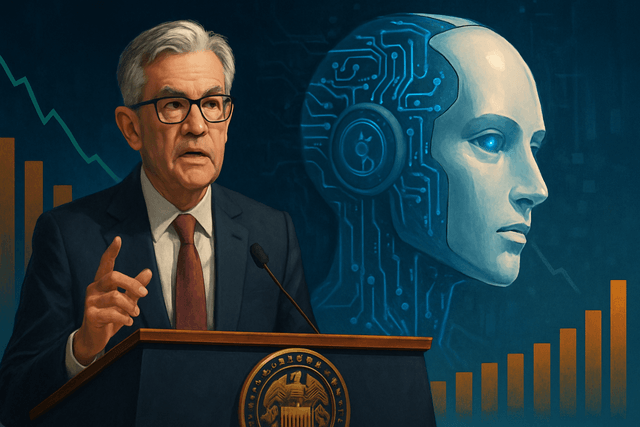Federal Reserve Governor Lisa D. Cook outlined the central bank's dual approach to artificial intelligence during her address at the National Bureau of Economic Research Summer Institute in Cambridge, Massachusetts on July 17, 2025.
The Federal Reserve is not only studying how AI is affecting the broader economy but is also implementing the technology within its own operations. While Cook clarified that the Federal Open Market Committee (FOMC) is not using AI in developing monetary policy, the Fed is utilizing it to enhance writing, coding, and research functions. "For example, we have been deepening our understanding of the capabilities of LLMs [large language models] and other machine learning models to produce economic insights," Cook explained, adding that these findings are being documented in Fed papers.
Cook explicitly stated that "the FOMC is not using AI in developing or setting policy," emphasizing that AI tools are primarily aiding staff with their other tasks. The Fed has been actively exploring the capabilities of large language models and other machine learning approaches to generate economic insights, with several Fed papers documenting their findings.
The central bank is fostering a culture of AI experimentation and knowledge sharing. "Earlier this year, the Board hosted an AI expo where AI early adopters shared their experiences with AI and innovative AI use cases," Cook noted. These events showcase cross-functional collaboration throughout the Federal Reserve System and demonstrate potential AI-driven solutions for economic analysis, financial stability, and operations. They provide valuable opportunities for sharing successes and failures with different use cases.
Beyond internal experimentation, Cook mentioned that Fed staff regularly engage with professionals from academia, other central banks, and industry to stay current with the latest AI developments.
Regarding AI's economic implications, Cook suggested that AI could boost productivity and help achieve higher economic growth while reducing inflationary pressures by offsetting labor cost increases. "The ability of AI to process and analyze ever larger amounts of data will likely lead to advances in scientific research and innovation, resulting in an increased arrival rate of ideas, further amplifying its effect on productivity," she stated. Cook acknowledged that while AI might have a disinflationary effect over time, it could temporarily boost prices as adoption requires increased aggregate investment. She emphasized that she continuously monitors incoming data, the evolving economic outlook, and various risks to the Fed's dual mandate.
As AI continues its rapid advancement, the Federal Reserve's approach demonstrates a balance between leveraging new technologies to enhance its own capabilities while carefully studying their broader economic implications.

